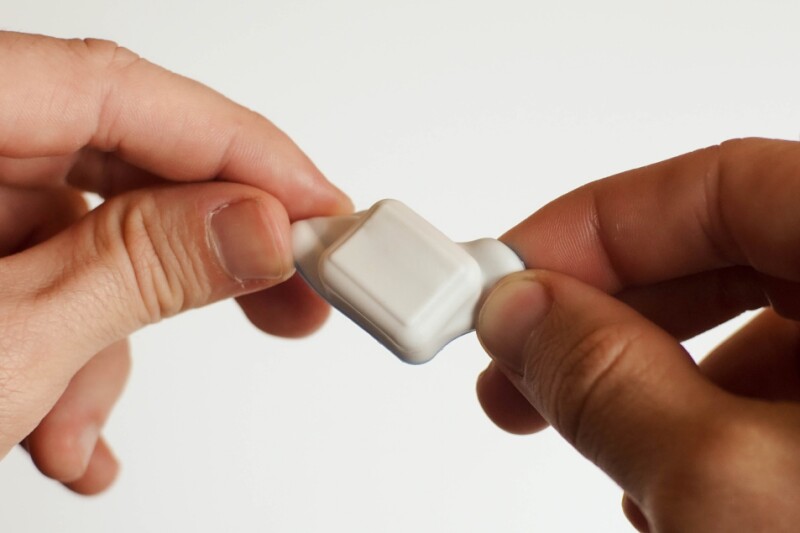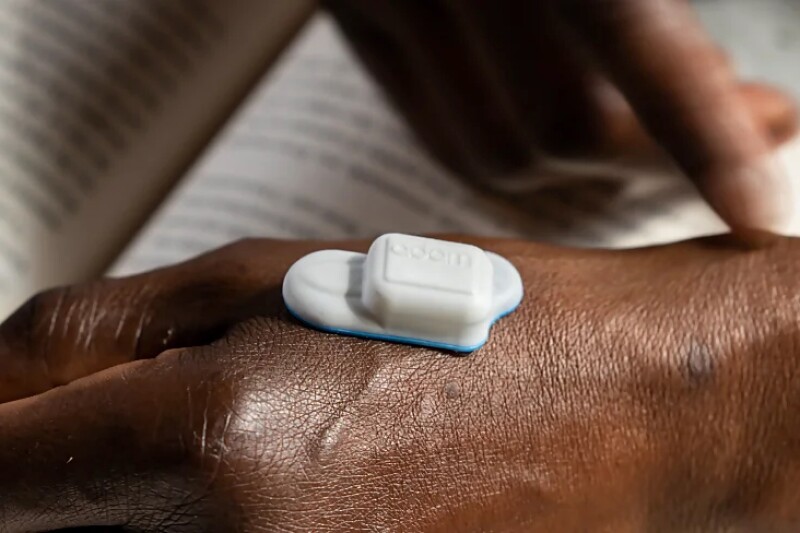Sensor Prevents Nighttime Scratching Without Disrupting Sleep

Sibel Health
A new device aims to help individuals with chronic itching avoid scratching their skin during sleep, without disturbing their rest. Scratching can exacerbate dermatitis, and this innovative sensor seeks to address the issue.
Key Components of the ADAM Sensor
Developed by Chicago-based Sibel Health, the ADAM (ADvanced Acoustic-Mechanic) sensor integrates several key components: a microprocessor, a haptic feedback motor, a Bluetooth module, an IMU (inertial measurement unit), and a rechargeable battery. These are all housed in a waterproof, medical-grade silicone casing, which attaches to the back of the patient’s dominant hand with a hypoallergenic, waterproof adhesive.
The device operates through an AI-based algorithm running on the microprocessor. It analyzes real-time data from the IMU to detect hand movements associated with scratching. This information is then transmitted to a smartphone or computer, where it can be reviewed by a physician.

Sibel Health
When the device detects scratching, it activates the motor and delivers a subtle vibration, alerting the wearer to their behavior without waking them. This technology draws inspiration from the NightWare system, which uses an Apple Watch to vibrate and interrupt PTSD-related nightmares without disturbing sleep.

Sibel Health
Successful Pilot Test and Results
In a pilot test, 10 adults with atopic dermatitis used ADAM nightly over 14 days. During the first week, they kept the motor disabled, and the device only recorded scratching activity, achieving 99% accuracy compared to infrared video footage. In the second week, they activated the motor, which led to a 28% reduction in scratching time and a 40% reduction in scratch events. The best part? Participants reported no disruptions to their sleep, with their total sleep time increasing by an average of 16%.
While further research, including larger studies with more diverse participants, is necessary, ADAM is now moving forward commercially through a partnership between Sibel Health and Maruho, a Japanese dermatology technology company.
Read the original article on: New Atlas
Read more: Popular Sleeping Pill May Block the Brain’s Essential Cleaning Cycle










